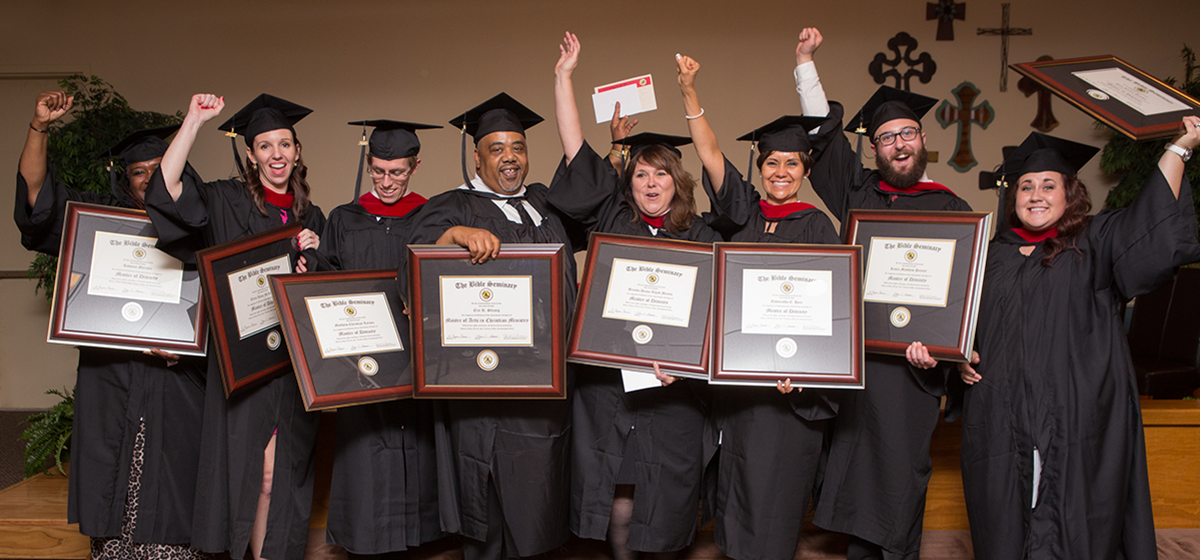There you are, reading your Bible or listening to a sermon, when “Bam!” suddenly you come face-to-face with something quite unexpected. Just moments prior, you were comfortable, content, and mentally, emotionally, and spiritually at ease. Then, as you read or listened to something right out of the Bible, you realized it did not match up with what you have “always” believed or been taught. And there it was, quite unexpectedly – your theology – staring at you with great consternation, even anger.
As you study Scripture more diligently and engage in discussions with others more knowledgeable to confirm this startling information, you find yourself uncomfortably and continually confronted by your own belief.
Like an enraged elephant with feet planted, outstretched ears, and willingness to charge, your theology dares you to take one more step.
“Defy me at our own risk!” your theology jeers.
Thus, you find yourself at pause. In a quandary. Confused. Even in danger.
“How can this be?” you wonder. “How can I have read and studied the Bible, been a Christian this long, and not realized that my theology in this instance does not seem to line up with what the Bible clearly teaches?”
Then, if you are serious, you will ask yourself, “Why? Why do I believe this? Where did this particular theological perspective originate?”
And you will embark on a journey of faith and understanding that hopefully, eventually aligns your theology with what the Bible actually says.
Elephant Tracks
One day, as we were studying through the book of Numbers, I was teaching a class of students about the Nazarite vow in Numbers 6.
“If a man or woman wants to make a special vow of separation to the Lord as a Nazarite,” I explained, “they must do three things during the time of the vow.”
Abstain from wine or other fermented drink, including avoiding anything that comes from the grapevine, including wine, grape juice, grapes, raisins, even grape skins and seeds (Numbers 6:3-5). Abstain from cutting any hair on the head – “Let the hair of the head grow long” (6:5).
Stay away from dead bodies, even if a family member dies – “Throughout the period of separation to the Lord, do not go near a dead body” (6:6-7).
At this point, everyone seemed comfortable. The biblical instructions seemed to make sense. However, that was about to change.
“Once the time of the vow is over,” I continued, “the Nazarite should present meat, bread, and drink (usually wine) offerings to the Lord, and then,” I said, quoting 6:20, “after that, the Nazarite may drink wine.”
Bam! One student looked visibly stricken.
“Wait,” the student said, placing both hands on his desk. “I always thought drinking alcohol was forbidden by the Bible. Yet, you are saying a Nazarite is commanded to bring a drink offering to the priest, and that the person can also then choose to drink wine after the period of their vow is over?”
“That’s what the Bible says,” I affirmed. “Unless that person is set apart as a Nazarite for life, like Samson or John the Baptist.” (Judges 13 and Luke 1)
Someone else in the class noted, “You do know that Jesus turned water into wine in His first miracle recorded in the Gospel of John?” (John 2)
“Yes, but it doesn’t say he drank the wine!”
“What about the Lord’s Supper?” another asked.
“I’ve always been taught that was weak wine, like grape juice or something,” the student explained.
I asked, “Have you read the passage in I Timothy 5:23 where Paul instructed Timothy to stop drinking only water, but to also drink some wine to help with his stomach and illness issues?”
He nodded and shrugged, his shoulders slumping from the mental weight of the mounting biblical evidence that seemed to contradict his theology.
“Why do you believe what you say you have always believed?” I ventured.
Obviously shaken, but with a sort of sheepish smile, he answered, “I’m not sure. I guess that’s what I’ve been taught. But, clearly,” he said, holding up his Bible, “what I believe doesn’t match up with God’s Word. I suppose I need to rethink my theology on this issue.”
Our own theology can confront us menacingly at times
Elephant Herds
That student is not alone.
I was sitting at a lovely rehearsal dinner one evening with my wife, the couple I was marrying, and a crowd of their family and friends. As the waiter came around offering to pour wine into our glasses, when my wife and I politely and quietly declined, the father of the groom asked me loudly from across the table, “Hey, preacher, would you explain to my sons that the Bible teaches alcohol is evil?”
He glared at his two sons – the groom and his older brother – while everyone else stared at me, some of them with wine glasses already at their lips, wondering what I would say and most probably expecting yet another condemnation from a religious person for their choice in beverages.
“The Bible doesn’t teach that alcohol is evil,” I replied. “It does offer cautionary guidelines about when and how to drink or not drink, and warns against abusing it. Drunkenness is condemned, along with other excesses like gluttony, hoarding, love of money, arrogance, pride, and self-righteousness. But, appropriately drinking wine is affirmed in both the Old and New Testaments.”
Thereafter continued a discussion in which I explained that, even though I did not choose drink alcohol because I was serving as a minister at that time, that was my personal choice, not a biblical command.
Unfortunately, the father continued to draw attention to himself, tout his own religious piousness, and assert that alcohol, in its entirety, was unequivocally evil.
This type of behavior exemplifies how rogue theology often leads to destructive behaviors, whereas right theology leads toward more constructive behaviors.
Taking Charge
One primary reason some ministries exist is to help willing students embark on a systematic, comprehensive safari through Scripture to develop a biblically-congruent, Christ-centered theology in all areas of life.
In doing so, some of us will have times where our theology confronts us.
But, we must learn to master our theology in light of Scripture, instead of the other way around.
What we think about God, Jesus, the Holy Spirit, the universe, life, our bodies, sexuality, relationships with others, miracles, money, sin, justice…all of these and more impact our lives now, and – at least in my theology – our eternal life or death.
Rogue theology can crush a life, and endanger others. Thus, we must work to master our theology so that it fully aligns with Scripture.
Otherwise, we will merely be touting our personal opinions and reducing Scripture to subservience to our own mortal sentiments, not God’s divine sovereignty.
A cut-and-paste perspective of the Bible – ignoring parts we don’t like and essentially adding in (i.e. reinterpreting) things we wish were in there – is a very popular strategy.
We often consider Scripture the way we consider a buffet meal, taking heaping measures of some things and completely passing over others, all the while considering ourselves to be judge and jury of the quality of the buffet.
However, Jesus insisted that “Man does not live on bread alone, but on every word that comes from the mouth of God” (Matthew 4:4).
The Apostle Paul encouraged the importance of correctly handling the word of truth (2 Timothy 2:15).
And the Bereans were lauded for their noble character, specifically because they “received the message with great eagerness and examined the Scriptures every day to see if what Paul said was true” (Acts 17:11).
In lieu of becoming victims of rogue theology, or herding together in the absence of faithful biblical scholarship and Christian character in vain attempts to justify our own opinions, embark on a life changing adventure through all 66 books of the Bible.
Work to master your theology so you can ride forward joyously, triumphantly, and rightly aligned with God’s Word!
For further reflection
According to the Bible, would you consider the following perspectives right, or rogue?
- The King James Bible is the only true version of the Bible approved by God.
- All religions ultimately worship the same God, they are just known by different names.
- Salvation requires full immersion baptism in flowing water as an adult believer to absolutely confirm one’s soul for eternity.
- Miracles in the Bible were actual supernatural events that happened just as described.
- So called “miracles” in the Bible are really myths with meaning based on events that can all be explained naturally.
- An unborn child who has not yet taken a breath of air is not “human”, does not have a soul, and therefore abortion cannot be considered murder.
- Homosexual behavior is clearly condemned in Scripture.
- Resurrection is an actual, physical event in which deceased people are raised back to life through the power of Jesus Christ.
- Resurrection is not an actual, physical event, but a spiritual term that describes the sacred act of keeping the “spirit” of people alive.
- Angels are spirits of formerly alive people (i.e. when we die, we become angels with wings).





